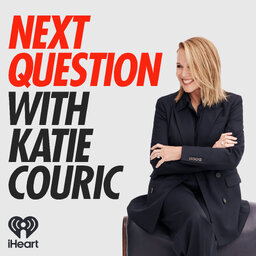If 87% of people are sick and tired of being divided we have more in common than we think. Daniel Lubetzky — philanthropist, social entrepreneur, and founder of the Kind company — is committed to understanding how we can come together to solve our most intractable problems. As a Mexican immigrant and son of a Holocaust survivor, Daniel believes fervently in our ability to overcome obstacles like hatred; he built his non-profit, Starts With Us, to help us find common ground. This episode also features Columbia psychology professor, Peter Coleman. His book “The Way Out: How to Overcome Toxic Polarization,” offers concrete tips on what each of us can do to achieve what so many of us want: solutions.
Want to be a know-it-all? Subscribe to Wake Up Call, our jam-packed newsletter. Monday through Saturday, we break down the top news stories of the day, answer your pressing questions, and scour the internet for the best entertainment tidbits, streaming recommendations, recipes, and health and wellness tips. To sign up, go to katiecouric.com, or click here.
 Next Question with Katie Couric
Next Question with Katie Couric


